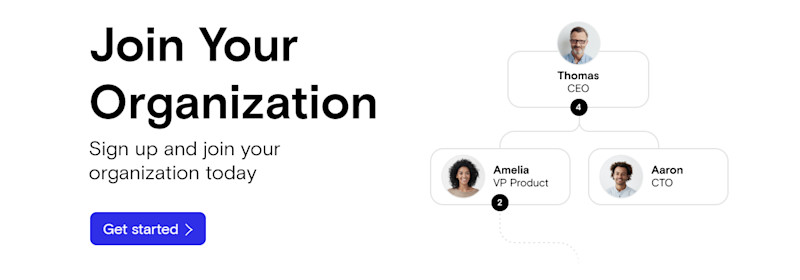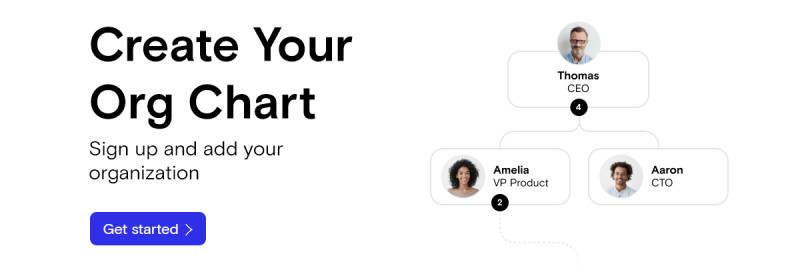Table of contents
Not all companies are created equal and working at a startup vs a large company will result in two different experiences. See which org type is a good fit for you.
If you work in the business world, chances are you’ll come to the startup vs corporate crossroads at least once in your career. While you may be aware of the basics of each option, there is much more to unpack to determine which position will be better for your career in the future.
If you’re unsure about which choice to make, here are a few things to keep in mind when deciding whether to take a job at a startup or with a large company.
Clearly Outline Your Career Goals
Before you start your job search, you should take the time to outline your career goals. Think about what you want out of a long term career and what talents and skills you bring to the table. Will you flourish by working in a relaxed environment, or do you need more structure and clear direction? Would you rather be part of a big team with small responsibilities or a small team that requires you to wear several hats?
You need to think about the current stage of your career. Do you have the necessary skill sets and experience to land your dream job, or do you still have more to learn? What do you need to succeed in your position? If you love to take risks and thrive on showing initiative, a position with a start-up may be perfect for you. But if you prefer to learn from higher-ups in a stable environment, a corporate position will be more your speed.
Working in Startups vs Established Companies
Environment & Culture
It’s no secret that the startup culture is relaxed and casual. Startups are typically run by younger people who are open to brainstorming and fostering openness. On the other hand, corporate culture is much more structured, and there will likely be a business culture that you will need to adapt to.
Responsibilities
In a corporate role, you’ll likely find yourself performing a clear role. You know what is expected of you and will have the materials at your disposal to help you succeed. You can focus on building your skills without having to constantly tackle new challenges.
With a startup role, you will find yourself constantly changing positions. As the startup grows, niched workers are hired, but in the early stages, you will perform several tasks in a day. This can result in long hours and several late nights.
Management
At a startup, you will be your own manager. Everyone is growing together, so it’s almost certain that you will need to motivate yourself to jump in and become a problem solver.
In a corporate position, you will know who your manager is and what they expect from you from your first day on the job. Public organizational charts are a great way to determine who your managers will be before starting a new job or before agreeing to an interview.
Pros and Cons of Working in A Startup
Pros
Visibility into Decisions
When you work for a startup, you have more visibility into business decisions. Newer companies focus on transparency and being open with team members, so you will always understand why and how decisions are made.
Relaxed Atmosphere
One of the biggest perks of working for a startup is the relaxed atmosphere. It’s not uncommon to see startup employees dressing casual, bringing their pets to work, or working from open desk plans. Startups aim to have a relaxed environment that encourages communication and community.
Cons
May Need To Work Outside Your Job Description
If you’re not keen on taking on roles you weren’t initially hired for, perhaps a startup isn’t for you. Since there are fewer people in the company, you’ll constantly find yourself handling assignments that are either above or below your pay grade.
No Job Security
You are dedicated to your job, but there’s no guarantee that it will be there come next year. Even some of the most promising startups can fail after a few years. If a company lacks the funds, your position could be the next to go.
Pros and Cons of Working for a Large Company
Pros
Job Stability
At an established company, you can rest assured that your job is much more secure. While no job is promised forever, a larger company is less likely to fail overnight.
Higher Entry Pay
It’s no secret that established companies have more money to spend. Since they have a constant flow of customers and clients supporting them, they can offer competitive packages to new talent. This may also include perks like childcare and private health insurance.
Cons
Less room for growth
It’s much harder to make an impact at a corporate company. Even if your ideas are good, if they are associated with any degree of risk, they’ll be turned down. You might be frustrated if you come from a company where your ideas were appreciated and had a direct impact on the success of the company.
Limited influence in the company
As a little fish in a big pond, corporate workers often find it hard to have any influence on the company. Although you work hard to contribute to the end result, it’s unlikely that your name will be brought up when it’s time for promotions.
View Your Future Company’s Org Chart
If you’re currently looking to find a job that will shape your future, and are trying to determine if you want to work at a startup or in a more established company, there are hundreds of job postings out there for you to look through. If you find a job that seems to be a good fit, check out their company’s org chart to get a better idea of the inner workings of the company.
In the case that you already have a role at a start-up or corporate company without an org chart, perhaps it’s time to create one for your company. The Org will help you through each step of the process to see how your company can benefit from an org chart.


The ÂÜÀòÂÒÂ× helps
you hire great
candidates
Free to use – try today

